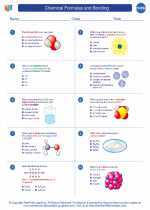Cartilage
Cartilage is a flexible connective tissue found in many areas of the body. It is composed of specialized cells called chondrocytes, which are surrounded by a gel-like matrix of collagen and proteoglycans.
Functions of Cartilage
- Provides structure and support
- Allows for smooth joint movement
- Acts as a shock absorber
- Facilitates the growth of long bones in children
Types of Cartilage
There are three main types of cartilage:
- Hyaline cartilage: Found in the nose, trachea, and at the ends of long bones
- Elastic cartilage: Found in the external ear and epiglottis
- Fibrocartilage: Found in the intervertebral discs and the knee joint
Structure of Cartilage
Cartilage is composed of cells and extracellular matrix. The extracellular matrix contains collagen fibers, which provide strength, and proteoglycans, which attract and hold water, giving cartilage its resilience and ability to resist compression.
Studying Cartilage
When studying cartilage, it is important to understand its composition, functions, and types. It is also helpful to learn about the role of cartilage in skeletal development and the implications of cartilage-related disorders.
Common Cartilage-Related Disorders
- Osteoarthritis: Degeneration of cartilage in joints
- Costochondritis: Inflammation of the cartilage that connects a rib to the breastbone
- Achondroplasia: A genetic disorder affecting cartilage formation and bone growth
Understanding cartilage is crucial for comprehending the structure and function of the skeletal system, as well as for understanding various medical conditions related to cartilage.
.◂Chemistry Worksheets and Study Guides High School. Chemical Formulas and Bonding

 Worksheet/Answer key
Worksheet/Answer key
 Worksheet/Answer key
Worksheet/Answer key
